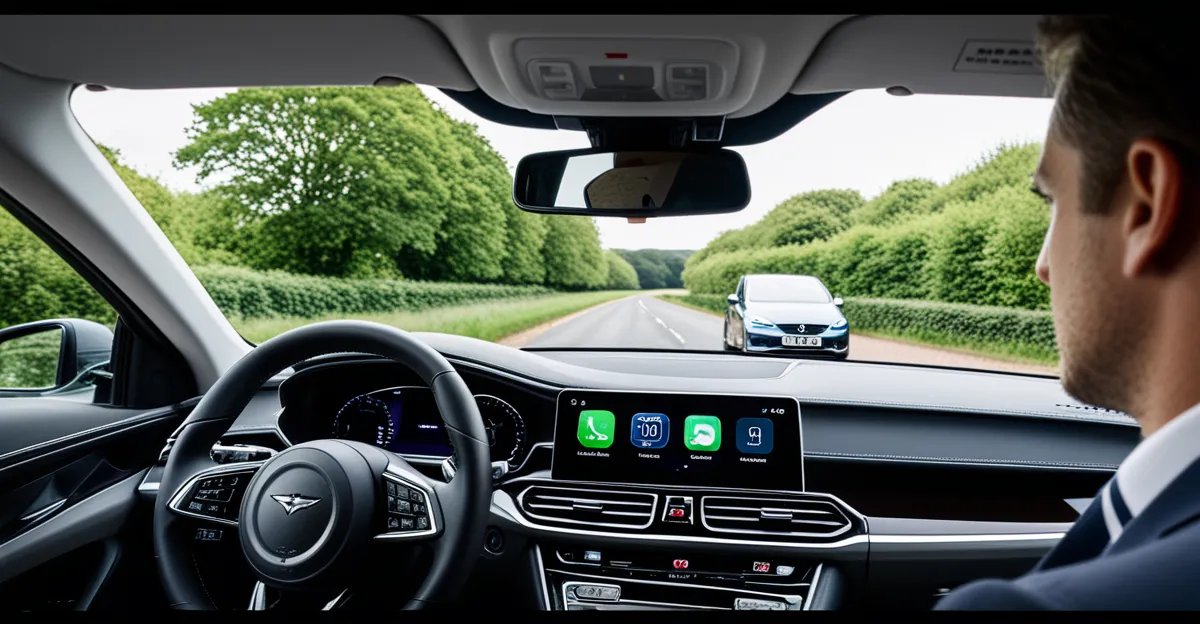Startups as Catalysts for Innovation in the UK Automotive Sector
Startups in the UK automotive sector hold a unique position, often outpacing established automakers in the speed of innovation. Their agility allows rapid technology adoption, driving advancements that transform traditional business models. Unlike larger incumbents burdened by legacy systems, these startups implement cutting-edge solutions that disrupt norms and introduce efficiency.
By focusing on niche areas such as electrification, autonomous systems, and connected mobility, UK automotive startups actively accelerate sector-wide innovation. They challenge the conventional automotive lifecycle through dynamic approaches, fostering a culture of experimentation that traditional manufacturers may lack.
Also read : What Are the Most Common Challenges Facing the UK Automotive Industry Today?
This dynamic landscape results in a continuous infusion of novel ideas, propelling technological progress at an unprecedented pace. Startups often pioneer technologies that, once proven, become integrated into mass production by larger firms. Their influence reshapes market expectations and pushes the sector toward cleaner, smarter, and more user-centric vehicles.
In summary, these innovative startups are catalysts, not merely contributors, revolutionizing the UK automotive industry’s technological trajectory and delivering transformative impacts that benefit the ecosystem as a whole.
In the same genre : How Will Emerging Technologies Change UK Automotive Manufacturing?
Notable Innovations Introduced by Startups
Startups have propelled the UK automotive sector forward with pioneering automotive technology such as electric vehicles (EVs), autonomous driving systems, and connected car platforms. These innovations are not isolated; they form an integrated approach to mobility solutions that prioritize efficiency, safety, and sustainability.
Electric vehicles lie at the heart of this transformation. Startups are perfecting battery technology and developing lightweight materials to extend range and reduce costs, overcoming long-term barriers to EV adoption. Autonomous systems, built on advanced sensor fusion and machine learning algorithms, improve driving accuracy and pave the way for safer roads. Meanwhile, connected vehicle technologies enable seamless communication between cars, infrastructure, and users, substantially enhancing the driving experience.
These ventures also drive sustainable mobility by addressing environmental concerns through zero-emission platforms and smart energy management. Their innovations influence how consumers interact with vehicles, shifting toward user-centric automotive services like subscription models and personalized mobility options.
In sum, UK startups’ focus on cutting-edge automotive technology actively shapes new mobility norms, offering solutions that benefit both urban environments and end-users. This dynamic fosters a sector-wide movement toward cleaner, smarter transportation systems.
Collaboration Between Startups and Established Automakers
Collaborations between UK automotive startups and established automakers are pivotal to accelerating technology adoption and fostering industry growth. Corporate accelerators and investment initiatives create structured environments where startups can pilot innovative solutions. These programs grant startups access to resources and market expertise, while traditional manufacturers benefit from fresh ideas and agile development.
Startup partnerships often lead to the integration of cutting-edge technologies into existing product lines. For example, innovations in electric vehicles, autonomous systems, and connected car technologies developed by startups are increasingly embedded within legacy automakers’ portfolios. This fusion not only enhances vehicle capabilities but also speeds the sector’s overall innovation pace.
Such automotive collaboration bridges the gap between nimble startups and large corporations. It allows for faster validation, scaling, and commercialization of breakthrough technologies. These partnerships help startups overcome resource limitations, while established firms mitigate risks linked to technological disruptions.
In sum, collaboration is a strategic tool driving transformational change in the UK automotive sector. It optimizes startup strengths and accelerates the adoption of innovative solutions, empowering both new entrants and legacy players to thrive in a competitive and evolving marketplace.
Challenges and Barriers Faced by Startups
Startups in the UK automotive sector face significant challenges that impact their innovation and technology adoption capabilities. One of the foremost barriers is navigating complex regulatory frameworks, which require compliance with stringent safety, environmental, and operational standards. These regulations can slow product development and limit the speed at which startups introduce new technologies.
Access to funding remains a critical hurdle. While some startups secure initial investment, scaling production needs substantial capital infusion, especially given the high costs of manufacturing automotive components and developing advanced mobility solutions. Limited financial resources constrain startups’ ability to rapidly expand or compete with established players.
Additionally, the UK automotive market is mature and highly competitive. Startups must differentiate themselves amid established automakers and suppliers with entrenched distribution networks and brand loyalty. This competition intensifies pressure on pricing, marketing, and technology validation.
Overcoming these obstacles requires strategic planning, leveraging collaborative partnerships, and securing supportive investment. Despite these barriers, many UK automotive startups continue to innovate, demonstrating resilience that drives the sector forward while navigating regulatory, funding, and competitive challenges.






